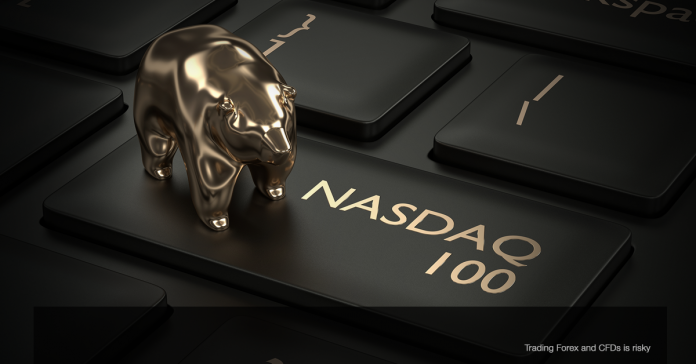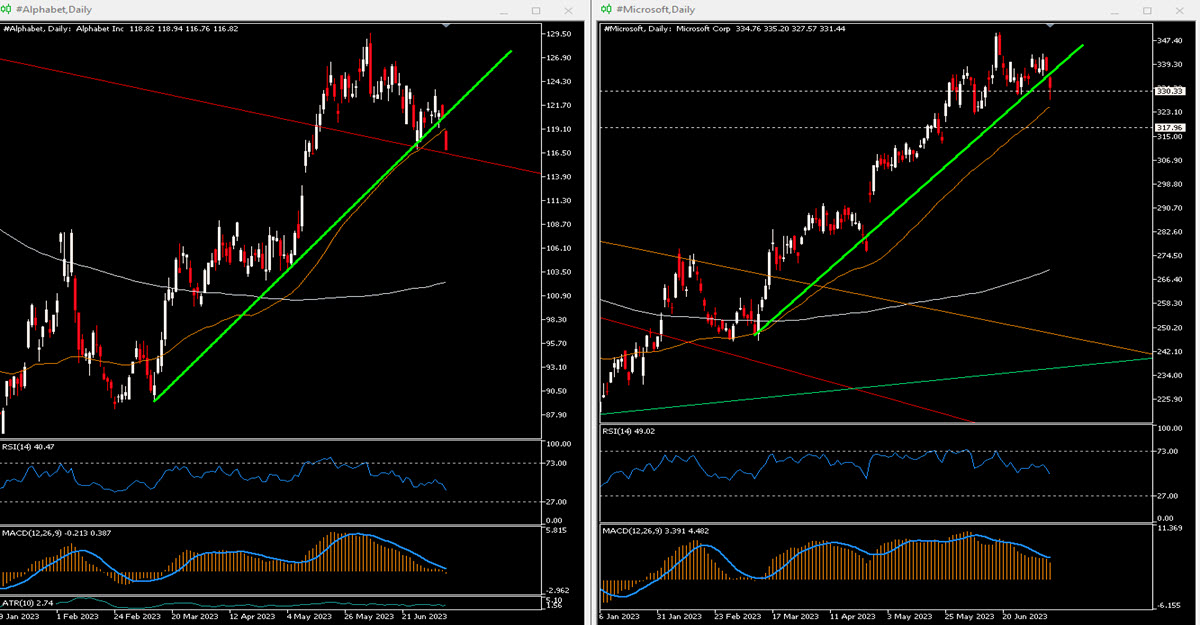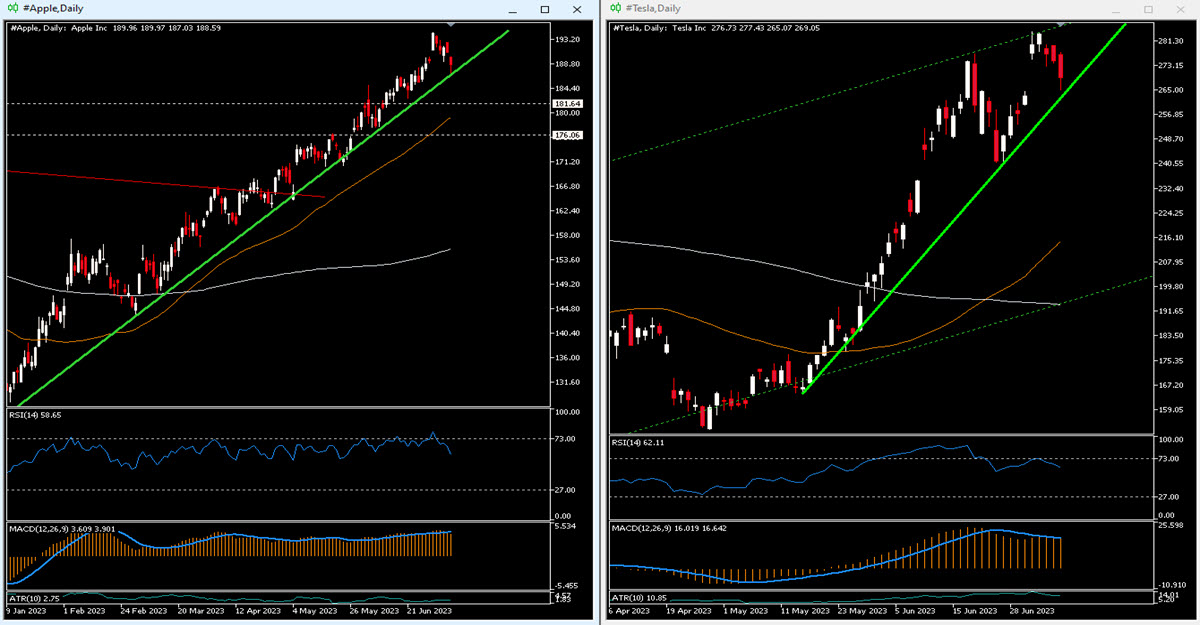With few exceptions, the worst performing tech stocks yesterday were very well-known names that have been on the lips of every trader interested in US equities for months. We  had already started to see something similar about 1 month ago: the best-performing stocks – but also the ones with the most stretched valuations in many cases, backed by very strong momentum – have reached a point where certain medium- to long-term investors can start looking around for other names that offer a better risk/return ratio. It is the classic phenomenon of rotation, which with the Nasdaq above 15,000 points seems to be starting to weigh on its Crown Jewels. We will look at some interesting charts in a moment.
had already started to see something similar about 1 month ago: the best-performing stocks – but also the ones with the most stretched valuations in many cases, backed by very strong momentum – have reached a point where certain medium- to long-term investors can start looking around for other names that offer a better risk/return ratio. It is the classic phenomenon of rotation, which with the Nasdaq above 15,000 points seems to be starting to weigh on its Crown Jewels. We will look at some interesting charts in a moment.
Last week after the very strong ADP data we also witnessed the beginning of a discrete steepening on the US rate curve and this is also a change, a kind of ”rotation”: although such data should normally have led to a strong selling of the short end (of the 2Y, in our case), in this case the selling was on the long end (short duration trade), most likely seen as more volatile and with more meat around the bones than a 2Y that for a few days traded well above 5%. For the record, the following chart starts in March as that had been the previous peak for the 2Y (and the last time the 10y had traded above 4%): it is interesting to know that back then the expectations for the terminal rate priced by the futures market were much higher than now (5.70% versus the 5.40% currently priced for Nov 2023). But let’s go back to stocks for a very brief but hopefully interesting overview. We will classify the FAANGMs into the following 3 groups:
2Y US T-note / 10Y US Bond, daily relative performance
Steepest trendline broken
In this category we put GOOGL and MSFT: the former is probably clearer and the price has also clearly lost its MA50. Both RSI and MACD are negatively sloped after several weeks of divergence.
Steepest trendline tested, negative indicators, long-term outperformance
Here we can put AAPL and TSLA. In the case of the former one it is also interesting to know that it is at ATH ($194.48). The indicators are negative and the distance to the MA200 is 21.54% and 39% respectively: these are values where a minimum mean reversion could take place.
Still well anchored above the trendline
Last we have AMZN and META (the latter printed +1.23% yesterday): in these cases even the steepest trend is still intact, but the indicators are slowly turning south and the red candles are beginning to be accompanied by high volumes. For Meta it is also very interesting that it has practically closed the Gap left open by the awful earnings released back in February 2022.
Click here to access our Economic Calendar
Marco Turatti
Market Analyst
Disclaimer: This material is provided as a general marketing communication for information purposes only and does not constitute an independent investment research. Nothing in this communication contains, or should be considered as containing, an investment advice or an investment recommendation or a solicitation for the purpose of buying or selling of any financial instrument. All information provided is gathered from reputable sources and any information containing an indication of past performance is not a guarantee or reliable indicator of future performance. Users acknowledge that any investment in Leveraged Products is characterized by a certain degree of uncertainty and that any investment of this nature involves a high level of risk for which the users are solely responsible and liable. We assume no liability for any loss arising from any investment made based on the information provided in this communication. This communication must not be reproduced or further distributed without our prior written permission.






















